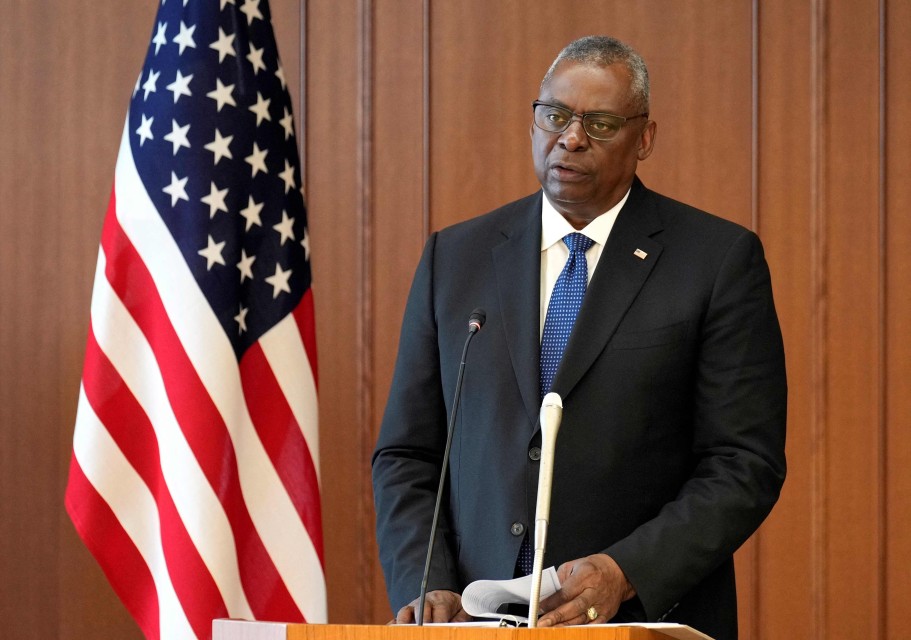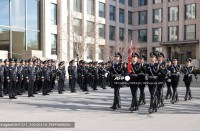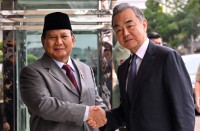
By W.G. Dunlop, Sara HUSSEIN
Agence France-Presse
TOKYO, June 1, 2023 (AFP) — Beijing’s decision to decline a meeting between US and Chinese defense chiefs is “unfortunate”, particularly given recent “provocative” Chinese behavior, US Defense Secretary Lloyd Austin said Thursday.
The comments come days after Washington accused Beijing of an “unnecessarily aggressive maneuver” near a US surveillance aircraft.
Washington had invited China’s Minister of National Defense Li Shangfu to hold talks with Austin on the sidelines of a defense summit in Singapore this week.
But Beijing declined the meeting, with a spokeswoman saying “the US knows clearly why there are currently difficulties in military communication”.
In Tokyo on a brief trip before his arrival in Singapore, Austin called that decision “unfortunate.”
“You’ve heard me talk a number of times about the importance of countries with large, with significant capabilities, being able to talk to each other so you can manage crises and prevent things from spiraling out of control unnecessarily,” Austin said.
Recent “provocative intercepts of our aircraft and also our allies’ aircraft” by China were “very concerning”, he added.
“I’m concerned about at some point having an incident that could very, very quickly spiral out of control.”
The US military said Tuesday that a Chinese fighter pilot had performed an “unnecessarily aggressive maneuver” near an American surveillance aircraft operating over the South China Sea last week.
Video footage released by the US military shows a Chinese fighter plane crossing in front of the American aircraft, which could be seen shaking from the resulting turbulence.
But China’s military said the US jet “broke into” a military training area.
It said the dispatch of ships and planes to “conduct close surveillance on China seriously harms China’s national sovereignty and security”.
– ‘Any opportunity to engage’ –
Austin and other US officials have been working to shore up alliances and partnerships in Asia to counter Beijing, but there have also been tentative signs the two sides are working to patch their relationship.
US National Security Advisor Jake Sullivan met top Chinese diplomat Wang Yi in Vienna this month, and President Joe Biden has said ties between Washington and Beijing should thaw “very shortly”.
Austin said Thursday he “would welcome any opportunity to engage with leadership”.
“Defense departments should be talking to each other on a routine basis,” he added.
Austin met Thursday with Japan’s foreign and defense ministers, and is due to speak with Prime Minister Fumio Kishida before leaving for Singapore.
He said the US-Japan alliance faced a raft of “common challenges”, including China’s “coercive behavior, North Korea’s dangerous provocations and Russia’s cruel war of choice in Ukraine.”
“But we are united by our shared interests and shared values. And we are taking important steps to modernize our alliances and strengthen our deterrence,” he added.
He cited trilateral cooperation with Australia and South Korea as well as the expanded “pace, scope and scale” of exercises and training.
The two militaries are also cooperating on advanced tech including “hypersonics, autonomous systems for teaming with fighter jets, and advanced air defense systems,” he added.
Austin arrived in Japan on Wednesday, hours after North Korea made a failed attempt to launch a spy satellite using technology banned under UN resolutions.
The US defense chief called the launch the latest in a series of “continued provocations”.
Pyongyang has stepped up missile launches in the past year, and Tokyo is also contending with growing pressure from Chinese vessels around islands contested with Beijing.
Last year, Tokyo unveiled a major defense overhaul, pledging to boost security spending to two percent of GDP by 2027 and calling China the “greatest strategic challenge ever” for Japan.







